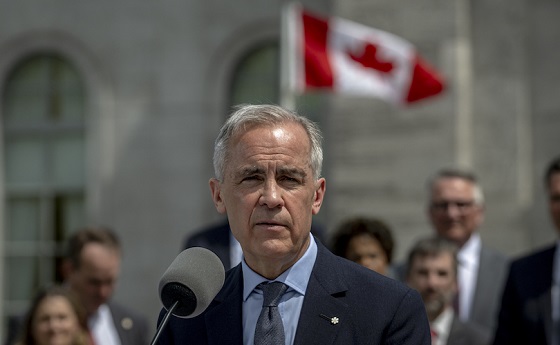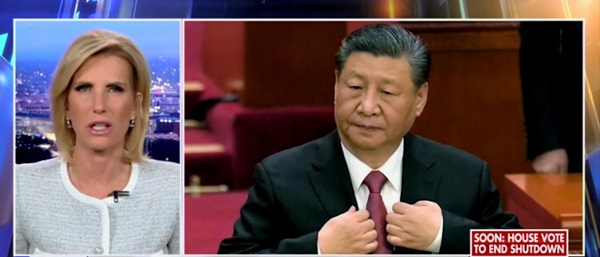Business
Feds to spend $13 billion taxpayer dollars to solve housing crisis they’ve mismanaged for years

From the Fraser Institute
By Jake Fuss and Austin Thompson
Prime Minister Mark Carney recently launched his new “Build Canada Homes” federal agency, which will help build “4,000 factory-built homes” at an initial cost of $13 billion. In light of the affordability crisis that’s plagued large swaths of the country, many Canadians likely welcome more government involvement in the housing sector. But does Ottawa have the ability to efficiently and effectively build homes?
To help answer that question, it’s helpful to consider the federal government’s real estate record. Most Canadians probably aren’t aware that the government owns a bloated portfolio of underused office space, yet efforts to shrink this portfolio have moved at a glacial pace. In 2017, the government acknowledged that half of its office space was underused. But it took until 2019 to formulate a plan to sell off these properties, and by 2023 the federal office footprint (managed by the Department of Public Services and Procurement) was barely reduced—from 6.0 million to 5.9 million square metres.
In light of this failure, the government in 2024 dedicated $1.1 billion in taxpayer money, over 10 years, to hasten the sale of underused federal properties and save taxpayers $3.9 billion in the first decade and $0.9 billion annually thereafter.
Unfortunately, this initiative is already failing. The original goal was to cut the federal office footprint by 50 per cent by 2034, but the government’s current projections envision only a 33 per cent reduction. That means taxpayers will shoulder the cost of maintaining more underused office space each year. And even after a decade and $1.1 billion spent, Ottawa will still be left with roughly one million square metres of idle federal office space.
Why?
According to an auditor general report released in 2025, the federal government lacks even basic data on its own real estate portfolio, routinely misses internal targets for consolidation, and continues to rely on a lengthy process that takes six to eight years to offload surplus buildings. Poor cooperation between federal departments has made matters worse. Nearly half of the largest departments have refused to sign space-reduction agreements, especially those that paid no rent and therefore had no clear financial incentive to give up empty offices.
These failures raise a key question: If the federal government cannot efficiently downsize its own office footprint—despite ample funding and years of effort—how can it credibly promise to deliver complex housing projects?
Which takes us back to the Carney government’s new federal agency, Build Canada Homes (BCH), which plans to develop affordable housing and accelerate housing innovation. But BCH will likely face the same pitfalls that plagued Ottawa’s real estate downsizing effort—namely, poor coordination across the government, competing political priorities, and no real pressure to deliver.
The plan for BCH relies on federal departments to work smoothly with each other, the provinces, municipalities, Indigenous governments and the private sector. BCH is already weighed down by competing mandates. It promises to develop more affordable homes, but only if they’re built with Canadian-made and climate-friendly materials. These goals are at odds. If a product requires a government mandate to be used, it’s not the most cost-effective option.
And taxpayers will give BCH $3.5 billion a year without any clear indication of what we’ll get in return. BCH’s plan promises “significant” numbers of “affordable” homes—with no indication of how the government will measure progress or affordability. How will Canadians know whether the program is on track? Or if it provides good value for tax dollars? These are fundamental questions, especially since there’s a clear risk that BCH spending may simply compete with private-sector development rather than add greatly to the overall stock of houses.
The stakes are high. If Build Canada Homes underperforms, Canadians could be left with few new homes and a considerable bill. Ottawa cannot efficiently downsize its own office footprint despite ample funding and years of effort. That record hardly inspires confidence in its promise to deliver complex housing projects across the country.

Austin Thompson
Business
Parliamentary Budget Officer begs Carney to cut back on spending

PBO slices through Carney’s creative accounting
The Canadian Taxpayers Federation is calling on Prime Minister Mark Carney to cut spending following today’s bombshell Parliamentary Budget Officer report that criticizes the government’s definition of capital spending and promise to balance the operating budget.
“The reality is that Carney is continuing on a course of unaffordable borrowing and the PBO report shows government messaging about ‘balancing the operating budget’ is not credible,” said Franco Terrazzano, CTF Federal Director. “Carney is using creative accounting to hide the spiralling debt.”
Carney’s Budget 2025 splits the budget into operating and capital spending and promises to balance the operating budget by 2028-29.
However, today’s PBO budget report states that Carney’s definition of capital spending is “overly expansive.” Without using that “overly expansive” definition of capital spending, the government would run an $18 billion operating deficit in 2028-29, according to the PBO.
“Based on our definition, capital investments would total $217.3 billion over 2024-25 to 2029-30, which is approximately 30 per cent ($94 billion) lower compared to Budget 2025,” according to the PBO. “Moreover, based on our definition, the operating balance in Budget 2025 would remain in a deficit position over 2024-25 to 2029-30.”
The PBO states that the Carney government is using “a definition of capital investment that expands beyond the current treatment in the Public Accounts and international practice.” The report specifically points out that “by including corporate income tax expenditures, investment tax credits and operating (production) subsidies, the framework blends policy measures with capital formation.”
The federal government plans to borrow about $80 billion this year, according to Budget 2025. Carney has no plan stop borrowing money and balance the budget. Debt interest charges will cost taxpayers $55.6 billion this year, which is more than the federal government will send to the provinces in health transfers ($54.7 billion) or collect through the GST ($54.4 billion).
“Carney isn’t balancing anything when he borrows tens of billions of dollars every year,” Terrazzano said. “Instead of applying creative accounting to the budget numbers, Carney needs to cut spending and debt.”
Business
Carney government needs stronger ‘fiscal anchors’ and greater accountability

From the Fraser Institute
By Tegan Hill and Grady Munro
Following the recent release of the Carney government’s first budget, Fitch Ratings (one of the big three global credit rating agencies) issued a warning that the “persistent fiscal expansion” outlined in the budget—characterized by high levels of spending, borrowing and debt accumulation—will erode the health of Canada’s finances and could lead to a downgrade in Canada’s credit rating.
Here’s why this matters. Canada’s credit rating impacts the federal government’s cost of borrowing money. If the government’s rating gets downgraded—meaning Canadian federal debt is viewed as an increasingly risky investment due to fiscal mismanagement—it will likely become more expensive for the government to borrow money, which ultimately costs taxpayers.
The cost of borrowing (i.e. the interest paid on government debt) is a significant part of the overall budget. This year, the federal government will spend a projected $55.6 billion on debt interest, which is more than one in every 10 dollars of federal revenue, and more than the government will spend on health-care transfers to the provinces. By 2029/30, interest costs will rise to a projected $76.1 billion or more than one in every eight dollars of revenue. That’s taxpayer money unavailable for programs and services.
Again, if Canada’s credit rating gets downgraded, these costs will grow even larger.
To maintain a good credit rating, the government must prevent the deterioration of its finances. To do this, governments establish and follow “fiscal anchors,” which are fiscal guardrails meant to guide decisions regarding spending, taxes and borrowing.
Effective fiscal anchors ensure governments manage their finances so the debt burden remains sustainable for future generations. Anchors should be easily understood and broadly applied so that government cannot get creative with its accounting to only technically abide by the rule, but still give the government the flexibility to respond to changing circumstances. For example, a commonly-used rule by many countries (including Canada in the past) is a ceiling/target for debt as a share of the economy.
The Carney government’s budget establishes two new fiscal anchors: balancing the federal operating budget (which includes spending on day-to-day operations such as government employee compensation) by 2028/29, and maintaining a declining deficit-to-GDP ratio over the years to come, which means gradually reducing the size of the deficit relative to the economy. Unfortunately, these anchors will fail to keep federal finances from deteriorating.
For instance, the government’s plan to balance the “operating budget” is an example of creative accounting that won’t stop the government from borrowing money each year. Simply put, the government plans to split spending into two categories: “operating spending” and “capital investment” —which includes any spending or tax expenditures (e.g. credits and deductions) that relates to the production of an asset (e.g. machinery and equipment)—and will only balance operating spending against revenues. As a result, when the government balances its operating budget in 2028/29, it will still incur a projected deficit of $57.9 billion when spending on capital is included.
Similarly, the government’s plan to reduce the size of the annual deficit relative to the economy each year does little to prevent debt accumulation. This year’s deficit is expected to equal 2.5 per cent of the overall economy—which, since 2000, is the largest deficit (as a share of the economy) outside of those run during the 2008/09 financial crisis and the pandemic. By measuring its progress off of this inflated baseline, the government will technically abide by its anchor even as it runs relatively large deficits each and every year.
Moreover, according to the budget, total federal debt will grow faster than the economy, rising from a projected 73.9 per cent of GDP in 2025/26 to 79.0 per cent by 2029/30, reaching a staggering $2.9 trillion that year. Simply put, even the government’s own fiscal plan shows that its fiscal anchors are unable to prevent an unsustainable rise in government debt. And that’s assuming the government can even stick to these anchors—which, according to a new report by the Parliamentary Budget Officer, is highly unlikely.
Unfortunately, a federal government that can’t stick to its own fiscal anchors is nothing new. The Trudeau government made a habit of abandoning its fiscal anchors whenever the going got tough. Indeed, Fitch Ratings highlighted this poor track record as yet another reason to expect federal finances to continue deteriorating, and why a credit downgrade may be on the horizon. Again, should that happen, Canadian taxpayers will pay the price.
Much is riding on the Carney government’s ability to restore Canada’s credibility as a responsible fiscal manager. To do this, it must implement stronger fiscal rules than those presented in the budget, and remain accountable to those rules even when it’s challenging.
-

 Frontier Centre for Public Policy1 day ago
Frontier Centre for Public Policy1 day agoRichmond Mayor Warns Property Owners That The Cowichan Case Puts Their Titles At Risk
-

 armed forces2 days ago
armed forces2 days agoCanadian veteran says she knows at least 20 service members who were offered euthanasia
-

 Daily Caller2 days ago
Daily Caller2 days agoLaura Ingraham’s Viral Clash With Trump Prompts Her To Tell Real Reasons China Sends Students To US
-

 Alberta2 days ago
Alberta2 days agoHow economic corridors could shape a stronger Canadian future
-

 Business1 day ago
Business1 day agoSluggish homebuilding will have far-reaching effects on Canada’s economy
-

 Business1 day ago
Business1 day agoMark Carney Seeks to Replace Fiscal Watchdog with Loyal Lapdog
-

 National2 days ago
National2 days agoConservative bill would increase penalties for attacks on places of worship in Canada
-

 Censorship Industrial Complex20 hours ago
Censorship Industrial Complex20 hours agoEU’s “Democracy Shield” Centralizes Control Over Online Speech











